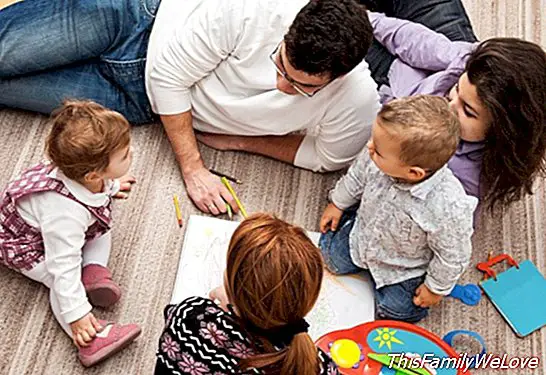Scientific bases of early education

Many parents wonder if there is need, obligation or convenience to stimulate the child's abilities up to 3 years old and in what way. In addition, they are concerned to know what happens with the learning after this stage, if they do not perform activities that call themselves early stimulation.
The presence or absence of this type of activity in schools is a factor that seems to be important when choosing a preschool or other center.
Science has been showing since the middle of the last century that early intervention aimed at children with defined or at risk disorders, manages to improve their development. Likewise, the scientists have tried to verify, therefore, that also the actions applied early in children without defined disorders or risk, supposedly improve their capabilities. However, this last statement could not be proved.
Despite this, they continue to launch such controversial statements as "the more environmental stimulation, the smarter our son will be", or "what you do not teach the child in these first three years, he will never be able to learn it again".
Disciplines of early education
Among the bases of the Early education There are several disciplines: evolutionary neurology, psychology of learning and maturation psychology, although neurology is the one that seems to have the most interest among parents and educators.
In fact, many of them, captivated by the rapid growth and development that seems to have the brain of the child in this triennium, may be tempted to artificialize the environmental learning situation or the normal development of their child, in order to improve the child development. The immediate danger is that the proposals become unnatural and stressful for the child and, therefore, counterproductive to their development. That is to say, both hypo-stimulation and hyperstimulation, are aspects that should be avoided at all costs.
Heritage and environment for early education
Early education in the first three years of life fundamentally seeks that the child harmoniously develop the area of language, socialization, the motor area and the area of personal autonomy. In the development of these areas, the inheritance plays an important role but not less than the favorable social environment and environment.
It is essential to know that the natural basis of stimulation that a child needs to develop basic skills is already available to a normal cultural environment, where he is unconsciously offered a large number of stimuli (satisfying his curiosity, reading what is written in a poster, or simply, when the child plays with his brothers or friends). Therefore, although parents do not do "certain stimulation exercises" with their child, it does not imply that they will lack the necessary stimulation to develop their abilities. It is a matter of spending time with the children, of taking advantage of everyday life to talk to them, to play music, to develop their social life, etc ...
Another thing is when the child suffers some anomaly or disorder. At this moment, it is an imperative task to carry out an intervention program, because in its absence the maturational development will take place in a much slower way.
Early education in the nursery?
Spanish legislation holds that the child in the first stage of pre-school education (0 to 3 years) can benefit from learning through a formal system.
However, although this legal recognition exists and it is known that the child can be in an educational environment rich in stimuli, what should worry the educator is that the quantity and quality of these stimuli are reasonable and taken care of.
As specialist Heese points out, "hyperstimulation, fluctuating stimulation and untimely stimulation are as harmful to functional systems as under-stimulation itself." This is a reference that should be taken into account when choosing preschool for the child.
Sonia Rivas Borrell
More information in the book: Early education from 0 to 3 years. Author Ana Sánchez, Teacher of Early Childhood Education




